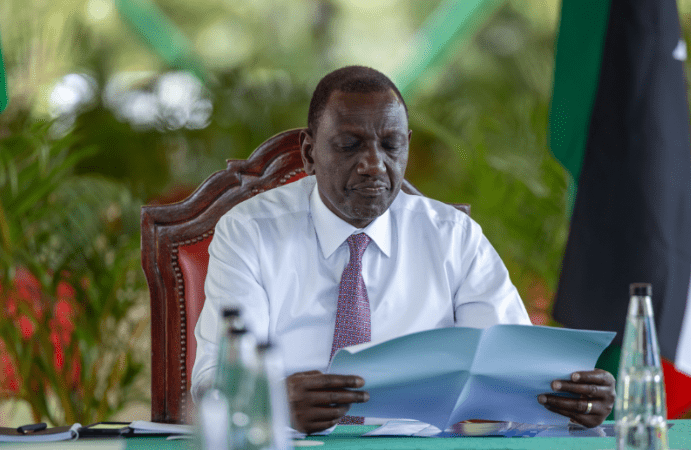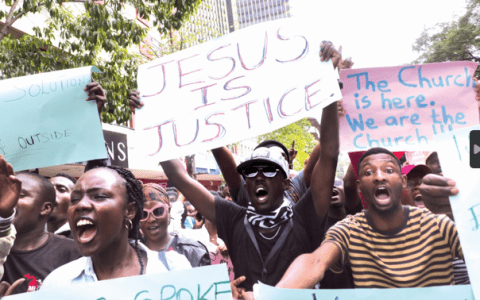For Ruto, power has price, past can’t be escaped

Amid escalating protests and widespread discontent about the 2024 Finance Bill, President William Ruto adopted a strategic approach combining selective honesty and strategic generosity to quell dissent and garner public support. This multifaceted plan aims to mitigate a backlash while upholding the fiscal objectives of his administration.
The effectiveness of this approach is uncertain in the court of public opinion. But is the Government using selective honesty and generosity to disarm the populace in the push and pull over the finance bill?
Once upon a time in ancient Greece, there was a king named Damocles who rose to power through ruthless means. Once on the throne, he ruled with an iron fist, fearing that any display of weakness would invite challenges from his enemies. Surrounding himself with opulence and luxury, Damocles seemed to have everything a man could desire.
One faithful servant, who had served the king for many years, expressed his admiration for the throne and the power it symbolised. Intrigued by the servant’s longing, Damocles allowed him to sit on the throne for a day. The servant, unable to contain his excitement, spent the night envisioning the moment he would finally sit on the golden throne. However, his joy turned to fear when he noticed a sword hanging above the throne by a single horse’s hair. The servant realised that despite the material wealth and power, there was always a looming threat of danger and consequences for the actions taken to achieve such status.
Overwhelmed by the weight of the throne and the reminder of his past deeds, the servant quickly relinquished the seat, returning it to Damocles. This tale serves as a cautionary reminder that true power comes at a price, and the ghosts of one’s past actions can never truly be escaped. In this story, you will be the judge!
This scenario raises a thought-provoking question: where do we typically attribute all power to? the king or the sword? Power is not inherently tied to a title or position, but rather to the perception and belief of those surrounding us.
In light of protests that tragically led to deaths, President Ruto exhibited his empathetic and adaptable approach to governance by announcing the removal of the most disputed components of the finance bill in his recent public speech. This act of generosity was a calculated measure to defuse tensions and restore public trust in his leadership.
The tax debate has been influenced by Ruto, who emphasises future gains over present challenges. He is trying to balance economic necessity with public sentiment and shed light on the government’s urgent fiscal challenges. This approach represents a delicate balancing act, often involving difficult decisions that are frequently unpopular.
The President’s strategy highlighted areas where greater revenue will be invested, such as infrastructure, healthcare, and education. By linking the tax hikes to tangible improvements in public services, Ruto aimed to foster a sense of shared sacrifice and collective benefit.
This narrative is designed to counteract the immediate negative impact of the taxes with the promise of long-term gains. Although this strategy has achieved some success in alleviating immediate tensions, its long-term efficacy will rely on the government’s capacity to fulfil its commitments and tackle the underlying reasons for public dissatisfaction.
The President needs to prioritize engaging in dialogue with protesters to gain a deeper understanding of their grievances. Assess and modify the Finance Bill 2024, address public worries regarding corruption, enforce economic relief measures, reinforce accountability within law enforcement, and maintain regular public communication. These actions are integral in fostering transparency, accountability, and trust within the government and society.
The writer is an Innovations Evangelist and a PhD Candidate


